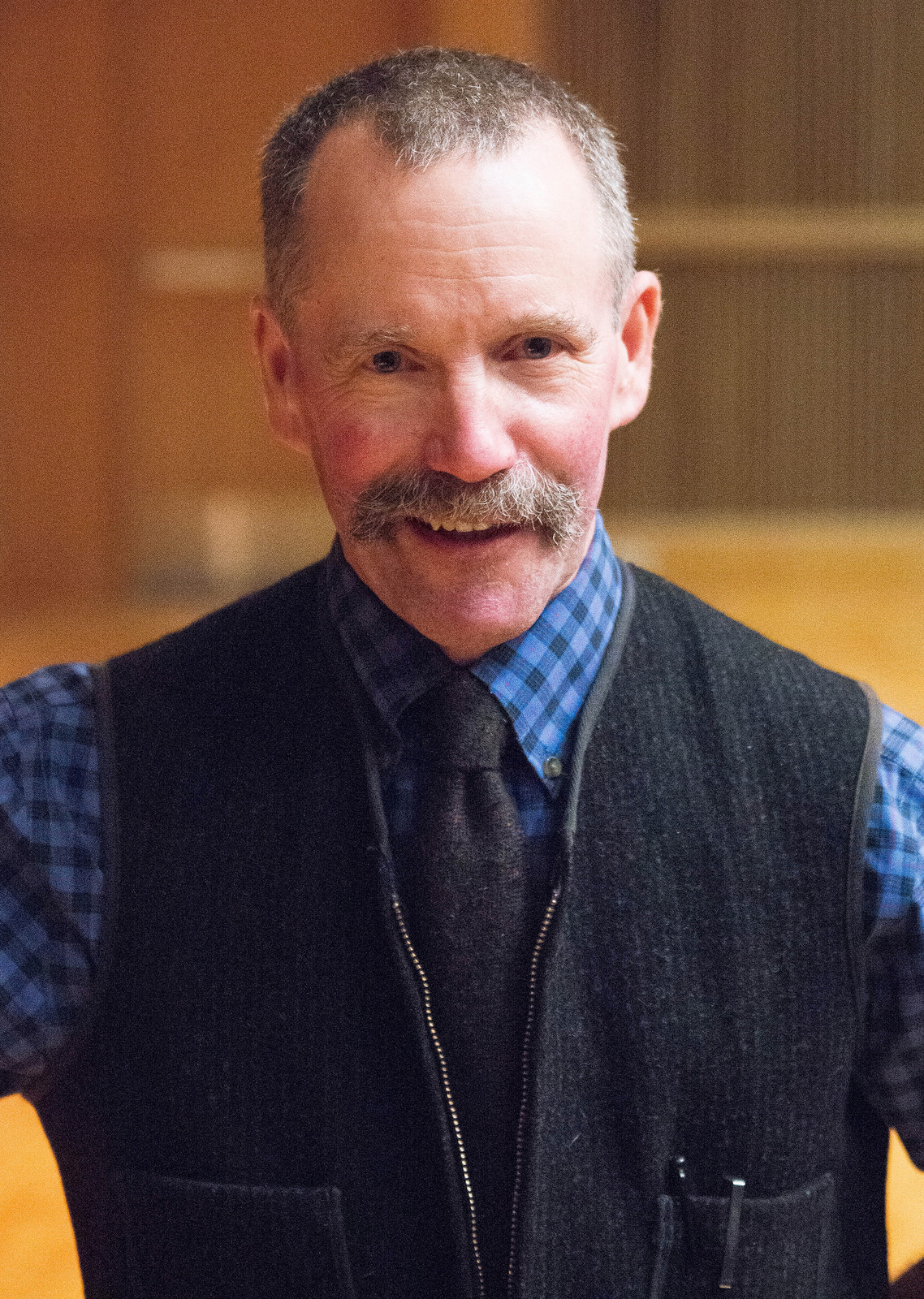News
“Bucket” actor kicked Hollywood career, has enjoyed life in veterinary medicine
Dr. Peter Ostrum spoke at Bond LSC in celebration of World One Health Day
By Phillip Sitter |Bond LSC

Dr. Peter Ostrum, who once played the character of Charlie Bucket in 1971’s “Willy Wonka and the Chocolate Factory” —also starring the late Gene Wilder — smiles after giving a lecture to an audience at Monsanto Auditorium in Bond LSC. After “Willy Wonka,” Ostrum did not pursue acting further, and went into a career in veterinary medicine. | photo by Phillip Sitter, Bond LSC
The character of Charlie Bucket found his golden ticket to a happy life wrapped in a Willy Wonka chocolate bar. Peter Ostrum, who at the time was just a child actor playing Charlie, later found his in horse pastures.
After playing Charlie in 1971’s “Willy Wonka and the Chocolate Factory” alongside the late Gene Wilder starring in the titular role, Ostrum didn’t pursue acting any further. He spoke about life as a veterinarian Nov. 3 at Monsanto Auditorium in Bond Life Sciences Center.
“People are always curious about what happened to Charlie. Why wasn’t he in any other films? Did he survive Hollywood? I’m relieved to tell you that my life didn’t end up as a trainwreck,” Ostrum said, getting some laughs from the crowd gathered to listen to him speak.
“The film industry just wasn’t for me,” he explained, although he did enjoy working alongside Wilder and co-star Jack Albertson, who played Grandpa Joe. Ostrum said that every day on lunch break during filming in Munich, Germany, Wilder would share a chocolate bar with him.
Back at home in Ohio, Ostrum worked at a stable, and had several positive interactions with veterinarians. He admired the profession, and working with horses specifically. He even went on to be a groomer for the Japanese three-day equestrian event team at the 1976 Summer Olympics in Montreal.
He wanted to become an equine veterinarian after a year working at an equine veterinary clinic. However, Ostrum discovered that dairy cow care fell more in line with his dreams, and after getting his veterinary degree at Cornell, he’s been doing that ever since — in upstate New York where he is also a husband and father of two children.
Ostrum described how agriculture and veterinary medicine have changed over recent years, with changing numbers and sizes of farms, the rising power of animal welfare groups and an increased desire from consumers to know where their food comes from. People want to know whether animals are treated humanely and whether farms are negatively affecting the environment, he said.
All of these changes and others require increased transparency, education and community outreach efforts by everyone working in agriculture, Ostrum said. In candidates for veterinary associates, he said that he looks for “the intangible skills at the heart of who people are” — their character and their ability to connect with clients and patients.
Ostrum also mentioned the importance of mental health awareness among veterinarians and other health professionals. “We can’t help others if we can’t help and support ourselves,” he said.
Ostrum was invited to speak at Bond LSC in celebration of World One Health Day — an effort to spur collaboration between experts in human, animal and environmental health. Attendees at the lecture could purchase chocolate bars for three dollars, and five bars out of 200 available contained golden tickets that entitled winners to prize baskets. Proceeds went to MU’s Veterinary Health Center’s Barkley House project — a guest house for families of pets receiving treatment.